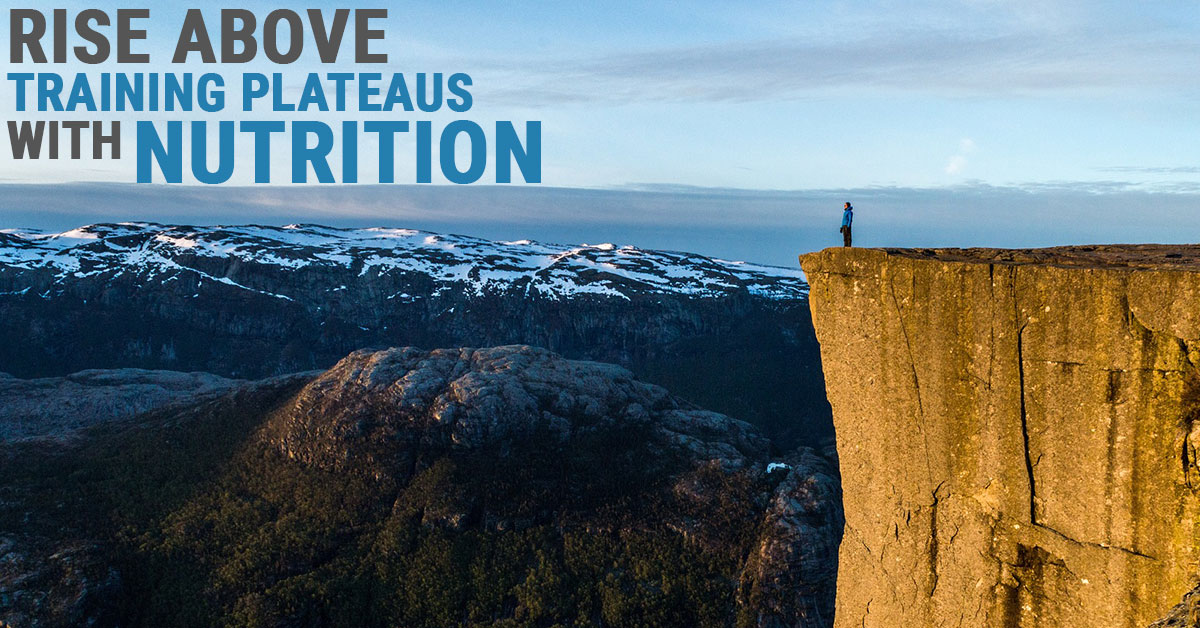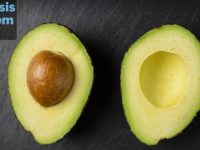Every climber plateaus at some point in their career. It’s frustrating, especially after rapidly progressing through the lower grades, but also inevitable. To combat this, they begin to add training in—campus boarding, resistance training, 4x4s, etc.—and they begin to move along again. All is well… but then the plateau happens again. Frustration sets in.
At this stage, different climbers take different approaches. Some flit from training program to training program, spending only enough time on each to realize they’re not making immediate progress and never spending the hours necessary to earn actual progress. Other climbers figure they’ve peaked (which is incredibly unlikely), accept that they’ll never climb any harder, and cease trying to climb harder. Some give up entirely and move on to less frustrating pastures, and a few persevere and enventually push past.
All of these climbers could benefit from one, easy tip: eat more.
Yes, the secret to breaking through the conventional training plateau could be as simple as just consuming more calories. And while I don’t want to completely oversell it—you do still need an effective training regimen, and you need skill work, and you need to climb—I think it’s important enough to spend an entire post on because too many climbers sell their training short by not adequately supporting it with nutrition.
Bricks and Tools
Here’s an analogy:
Imagine that you’re building a wall, and not just any wall, but a mega wall that will take years if not your entire life to complete. I don’t know why you’re building it, but just roll with it. It’s an analogy, not a sales pitch.
When you begin to build the wall, you’re pretty cheerful, and you’re pleased to see the progress you’re making each day. Whereas you could only lay 200 bricks per day in the beginning, pretty soon you’re laying 300, then 400. But as the days turn to months and years, you start to falter. You just can’t quite bust that 500 brick plateau, and your excitement starts to fade.
Not content to throw in the towel, you start to do some research. You read about wall-building techniques on the internet; you hire a master wallbuilder to teach you; you even get a bunch of new tools to make wall-building easier and more efficient. And again, you make some progress, and you bust through to the 500 brick level, and things are good—but even with all the help, you still can’t quite lay 600 bricks. Frustration befriends you.
One night, in the midst of your despair, you lament to a stranger in the bar about your problems. He listens intently, and when you finish recounting your plight, he asks you this:
“How do you expect to lay 600 bricks when you only get 500 delivered everyday?”
And for many climbers, therein lies the problem—they are more than happy to try new training techniques, get coached on skills, and spend hours on the wall, but providing the raw materials to improve is a bridge too far. They create an superficial limitation that is easily overcome by just having more bricks delivered.
Train Hard, Eat Hard
When you train, you are limited by a few factors. You’re limited by your current level of fitness. You’re limited by your current health. You’re limited by mental roadblocks and negative attitudes. You’re also limited by your nutrition. Simply put, you can’t train nearly as hard when you don’t supply enough energy.
You can’t expect to win a car race if you only fill the tank halfway.
It takes a lot of energy to train, and I can almost guarantee that you’re not meeting those energy requirements. Why? Because I know you climb, and I’ve met only a handful of climbers who eat as if they’re doing a rigorous, full-body activity for multiple hours a day and not just a casual stroll. And those climbers are strong.
If you’re unsure whether you’re eating enough, ask yourself this:
“What happens to my weight when I go through a hard training cycle?”
I don’t have real statistics on this, but I estimate that 65% would say they lose weight, 30% maintain weight, and only 5% gain weight. Guess which group is getting the most out of their training?
When I work with clients on performance goals, I adjust their diet so they gain about half a pound every week, or two pounds per month. At this rate, I can be sure that they’re not short-circuiting their training by skimping on diet while also guaranteeing that most of that additional weight will be muscle. At the very least, I want them maintaining—but honestly, I’d rather them put a pound a week during heavy training, even knowing that some of it will be fat.
Basically, I want to know that they’re fully meeting the physiological demands of their training. If they’re gaining weight, then I can be sure that they have maximum energy during a workout, and that they can train for as long and hard as they are physically capable, and that they’re recovering as quickly as possible between workouts. When this is true, both the quality and quantity of their workouts improve, and it’s significantly easier to bust plateaus.
Don’t Be Afraid to Gain Weight
Gaining weight isn’t the end of the world—not even fat weight. And if you spend too much time focused on not gaining fat, you’re going to wind up not gaining anything at all. You’ll just tread water, which is awfully similar to plateauing.
So that’s really it. Eat more. Eat more especially when you’re training hard. Eat so that you gain weight. “I really hate how strong my lats, biceps, and forearms are” said no climber ever, so eat like you mean it.
Obviously there’s more to it, but that’s where I see climbers fail—and granted, I’m a nutritionist, not a trainer, so I watch for diet mistakes, not training ones. For the sake of this article, I’m assuming that your training isn’t terrible and that there aren’t any ridiculously clear methods to improvement, like upping your climbing from once a week to thrice.
But assuming that is the case, then eating more may be the one tip you need to improve. So go out there and try it!














